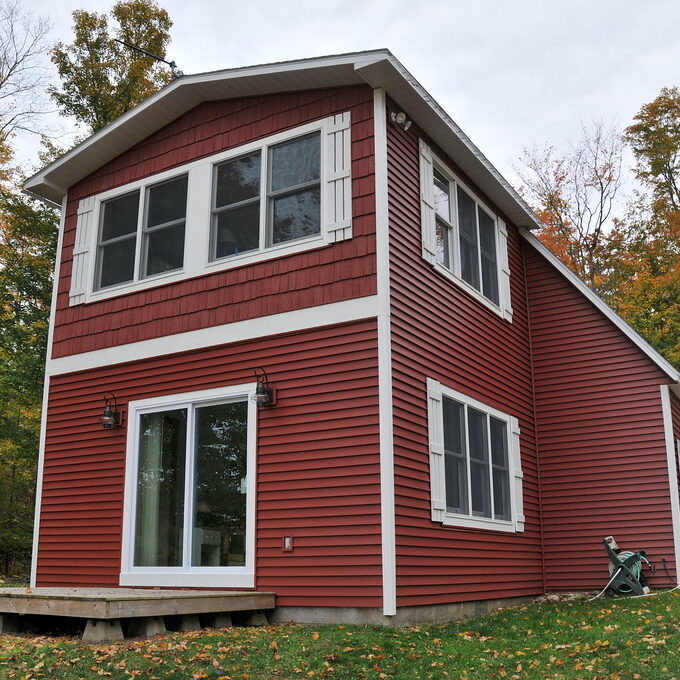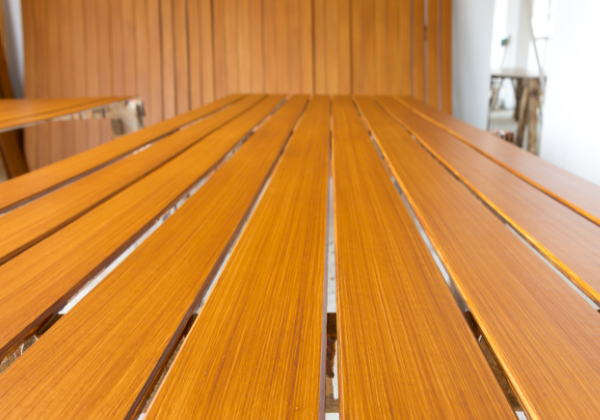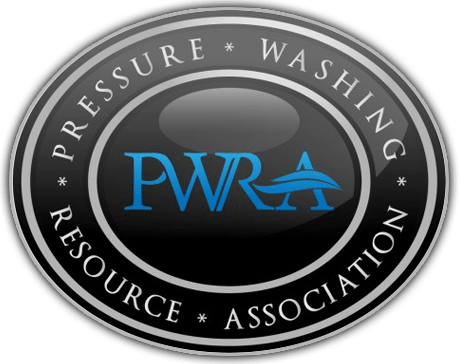
Keeping your Michigan home's exterior clean and well-maintained is critical for protecting it from damage caused by dirt, grime, and weather conditions. It also prevents your home from being the “ugly duckling” on the block…which is kind of a big deal.
Cleaning different types of siding can be a daunting task, especially if you're not familiar with the best practices and techniques. Whether you have vinyl, wood, or any other type of siding, understanding how to properly clean and maintain it can go a long way in extending its lifespan and keeping it looking its best. In this guide, we'll share our nearly 200 years of experience (not really) to take you through everything you need to know about cleaning different types of siding. If you are a DIYer, you’ll love the step-by-step processes we share in this article. So, get ready to transform your home's exterior (and your life…sorta…)!
Why Cleaning Your Home’s Siding is Important
Cleaning your home's siding is essential for maintaining its curb appeal and protecting it from damage. Over time, dirt and grime can accumulate on your siding, leading to discoloration, mold growth, and even structural damage. Regular cleaning can remove these contaminants and help extend the lifespan of your siding. Additionally, cleaning your siding can enhance your home's curb appeal and increase its value. And let’s face it- we all just FEEL better when our home is clean and looks great. And how we feel about our space is really important, right?
Understanding the Different Types of Siding
Ok, time to get nerdy. There are several types of siding commonly used on homes (duh), including vinyl, wood, fiber cement, aluminum, and more. Each type of siding has unique properties and requires different cleaning methods. Understanding the characteristics of your siding can help you choose the best cleaning solutions and techniques.
Vinyl Siding
Vinyl siding is a popular choice for homeowners due to its durability and low maintenance requirements. However, it can still accumulate dirt and grime over time, leading to discoloration and organic growth, such as algae and mold. There are a couple of ways to clean vinyl siding effectively, and the nice thing is that it’s quite easy to maintain.
The simplest method is soap, water, and a soft-bristled scrub brush. You can use a couple of ounces of laundry detergent mixed with a couple of gallons of warm water for this method. Start by wetting the siding with a garden hose, then apply the soapy water using the soft bristle brush. Work in small sections, scrubbing gently in a circular motion. Rinse each section thoroughly with a garden hose before moving on to the next. The drawbacks to this method are: 1) it’s labor intensive, and 2) if organic growth is present (algae, mold, etc.) this method will only remove the top layer. The roots will still be on the siding, and that means the staining can return rather quickly.

Method two is a little more involved, but requires less labor and often yields longer-lasting results. Use the same laundry detergent and water as in method one, but also include household bleach (wear protective clothing such as gloves and eye protection). A good ratio is 1 part bleach to 3 parts water. You can apply this with a brush, but a pump sprayer works better and makes the solution go farther. Apply this solution, working from bottom to top, and allow it to dwell on the surface for 10-15 minutes. It’s important to keep the siding wet by re-applying or misting it with water. You should see the staining fade quickly, but you can reapply the solution until the staining is gone. Then simply rinse with a garden hose- no scrubbing or high pressure needed!
Wood Siding
Wood siding adds a beautiful, natural look to your home's exterior. It is made from natural wood materials such as cedar, or pine. However, it requires more maintenance than other types of siding. Over time, wood siding can become discolored and develop mold and mildew.
To clean wood siding, you’ll first need to determine what the finish on the wood is. Depending on the answer, you may need to adjust your process.
If it’s painted, you can use the same methods we described with vinyl siding. Just make sure to do a test spot in a small, unobtrusive area. This is important because some exterior paints react poorly with cleaning solutions, especially bleach. It’s rare, but it does happen.

If the wood is stained, you should avoid using the bleach solution mentioned above. This is because bleach can sometimes brighten or even strip certain types of stains. It should be perfectly safe to use the brush/soapy water method described above, though.
If the wood is unfinished or has a dull gray appearance, it may need more extensive work to restore its original appearance. Now would be the time to contact a professional, as restoring weathered wood is a three-step process involving cleaning chemicals, power washing, and then applying a brightening agent to the wood.
Fiber Cement Siding

Fiber cement siding (often referred to as “Hardi board” or “composite” siding) has become a popular exterior product over the last decade or so. Though more expensive compared to other types of siding, it is a durable and low-maintenance option that resists mold and mildew growth. However, it can still accumulate dirt and grime over time.
To clean fiber cement siding, you'll most likely need to break out that scrub brush we mentioned before. Start by wetting the siding with a garden hose, then apply the soap and water-cleaning solution we’ve already mentioned. It’s best to work from the bottom to the top when applying the detergent. Work in small sections, scrubbing gently in a circular motion. Rinse each section thoroughly with a garden hose before moving on to the next.
Aluminum Siding
Aluminum siding is a low-maintenance option and can be painted with a variety of colors. Although its popularity has waned in recent years, it’s still a very common siding product in older homes. Aluminum siding is durable, but it can dent and scratch easily. It’s also prone to discoloration as it ages, and this is normally associated with a phenomenon called “oxidation”. After years of exposure to the elements, the exterior finish on aluminum siding can start to fade or become blotchy. You can test for oxidation on the siding by swiping your finger on the surface. If you see a powdery residue, the siding has oxidized. At this point, it can still be cleaned, but cleaning won’t correct the issue. In some cases, oxidized aluminum siding can be repainted and provide many more years of life. In other cases, it may be time to replace it.
To clean aluminum siding, you can use either of the methods described above (either the soap/water/brush method or the bleach solution method.) Both will work, but it’s smart to do a test spot before proceeding with either method.

Tips for Effective Siding Cleaning and Maintenance
To keep your siding looking its best, there are several tips and tricks you can follow:
- Clean your siding at least once a year to remove dirt and grime buildup.
- Use a soft bristle brush or a soft cloth to avoid damaging your siding.
- Rinse each section thoroughly with a garden hose before moving on to the next.
- Avoid using high-pressure washing as it can damage your siding.
- Use a mild water and soap solution or a cleaning solution specifically designed for your type of siding.
- Wear protective gear, such as gloves and safety glasses, when cleaning your siding.
- Inspect your siding regularly for damage or signs of wear and tear.
Common Siding Cleaning Mistakes to Avoid
While cleaning your siding may seem straightforward, there are several common mistakes to avoid:
- Using a high-pressure washer can damage your siding and force water under the siding.
- Using abrasive cleaning tools, such as wire brushes, can scratch and damage your siding.
- Using the wrong cleaning solution, which can discolor or damage your siding.
- Neglecting to rinse each section thoroughly, can leave cleaning solution residue on your siding.
- For siding that directly faces the sun, or in hot climates, it’s smart to cool down the surface with water before applying any cleaning agent. This will prevent “flash drying” of the cleaner, which can be difficult to rectify.
Hiring a Professional Siding Cleaning Service
If you're not comfortable cleaning your siding yourself, or if your free time is valuable to you, you may want to consider hiring a professional siding washing service. A professional service can ensure your siding is properly cleaned and maintained without causing damage. Be sure to choose a reputable exterior cleaning company with experience, the right equipment, and insurance coverage. Online reviews, such as Google Business Profiles, are a great way to get a read on a company before contacting or hiring them.
Cleaning your Michigan home's siding is essential for maintaining its curb appeal and protecting it from damage. Understanding the characteristics of your siding and following the proper cleaning techniques and tips can help you keep your siding looking its best. If you're not comfortable cleaning your siding yourself, consider hiring a professional service. With a little effort and care, you can keep your home's exterior looking beautiful for years to come.
More Recommended Articles:
Roof Cleaning Service: To Get Or Not To Get?
Are you a homeowner in Oakland County Michigan considering getting a roof cleaning service but aren’t sure if it’s worth the money? You’re not alone! A lot of people are on the fence about this one. In this post, we’ll talk more about roof cleaning service, its importance, and if it is valuable to homeowners.…
Power Washing To Boost The Value Of Your Michigan Home
If you’re like most homeowners in Michigan, then you want your home looking the best on the block and to be as valuable as possible. But, what about those who don’t want to spend thousands of dollars and hours renovating? There’s an easy way for homeowners to boost the value of their home without spending…







